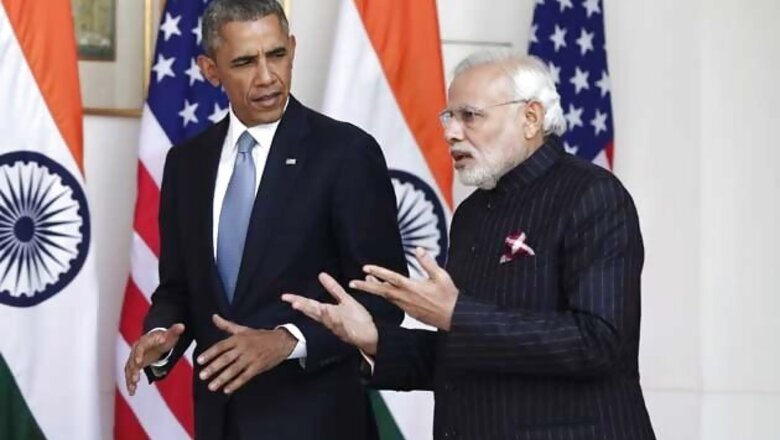
views
Washington: The US remains heavily engaged with India and the strategic relationship between the two countries has energised under the new leadership of Prime Minister Narendra Modi, a top Pentagon commander has said.
"Last year, India held the largest election in its history. With new leadership in place, India is energising the US-India strategic partnership," Admiral Samuel J Locklear United States Navy Commander of Pacific Command has said.
The US military remains heavily engaged with New Delhi's military, having conducted 69 major exercises in the past five years, he said. The Indian Navy continues its strong participation in multilateral exercises including INDRA with Russia, MALABAR with the US and Japan, and RIMPAC with 23 navies from across the Indo-Asia-Pacific, Locklear said.
Noting that over the past three years the US has been India's largest defence trading partner, Locklear said India's participation in these exercises signals its commitment as a regional security provider "Through military modernisation, robust defence trade (C-17s, C-130Js, and P-8Is, among other items), and a growing network of defence partnerships, India is asserting its role as an important regional actor determined to protect common interests and ensure free access to economically vital sea lanes," he said.
"Although with respect to military activities, India still asserts a security interest in its EEZ that does not conform to the law of the sea," he said. Testifying before the Congressional sub-committee, Locklear said China is executing a strategy that includes expanding outposts in contested areas through land reclamation on South China Sea features.
China is taking actions to prevent other nations from establishing / maintaining outposts, exploring for natural resources in disputed waters, and increasing its naval and air forces' presence through exercises and patrols, he said. China's aggressive land reclamation and construction projects at eight South China Sea military outposts include new buildings, more capable berthing space for ships, and presumably an airfield on the Fiery Cross Reef (China's largest reclamation project), he said.
"The US does not take a position on issues of sovereignty with respect to territorial claims in the East and South China Sea, but we do insist that all maritime claims must be derived from land features in accordance with international law as reflected in the Law of the Sea Convention," Locklear said.
He said the US emphasised the importance that maritime and territorial disagreements be resolved peacefully in accordance with international law and opposes the use of intimidation, coercion, or force to assert claims.




















Comments
0 comment